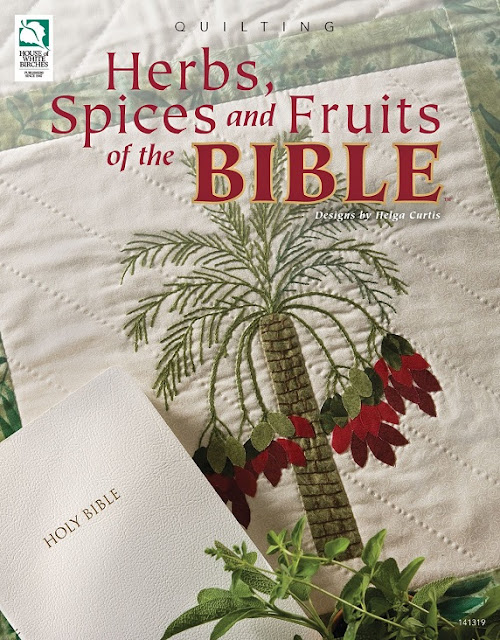Studying the Bible, even if you are not seeking spiritual enlightenment, will always be educational and informative. No matter which topic you are researching. Helga Curtis wrote a book about fruits, herbs and spices in the Bible. Fifteen (15) plants were chosen because of their Biblical references. She is proficient in arts and crafts and teaches others her skills. In her book, she shares appliqué designs for fruits, herbs and spices such as chicory, cinnamon, cumin, mint,mandrakes, saffron, olives, figs, grapes, and more. Along with patterns, she also provides information about how the plants were used in Bible times.
Along with this book, I also found an excellent article at one of my favorite GO TO websites for general health information: Dr. Axe. No worries. It has a Medical Disclaimer that says the content is for information only and that you should seek professional medical advice if you're sick. He also provides scriptural references for the herbs and spices.
Top 14 Herbs of the Bible that Heal & Nourish
1. Aloes
2. Anise
3. Balm or Balsam
4. Bitter herbs
5. Cassia
6. Cinnamon
7. Cumin
8. Frankincense
9. Garlic
10. Hyssop
11. Mint
12. Mustard
13. Myrrh
14. Saffron
The last spice, Saffron? No doubt you already know that saffron is the most expensive spice in the world.) But did you know that it was used to treat the Black Death (i.e. the Bubonic Plague)? Uh huh. Just goes to show you. When rich folks start dying and dropping like flies, if it comes to choosing between life and death, ain't nothing too expensive!!
NOTE: I am not a qualified historian. I'm just inserting my editorial comments, i.e. my opinions, observations, and a little bit of humor. Here is what an herbologist has to say about the use of saffron to treat the Bubonic Plague.
"For several centuries the cultivation of Crocus sativus was, for the most part, none-existent throughout Europe. This changed after the Moorish civilisation spread from North Africa around the 8th century and began reintroducing the spice. Saffron was rare, expensive and in high demand right up until the 14th century, when its use soared due to the medicinal applications of the plant in attempted treatments for the Black Death. However, many of the farmers that grew Crocus sativus had died from the disease and the demand far outstripped the supply. Thus large quantities of non-European saffron began to be heavily imported. The trade of saffron became of such significance that those found guilty of adulterating supplies were fined, imprisoned and even executed." (Quote Source)






